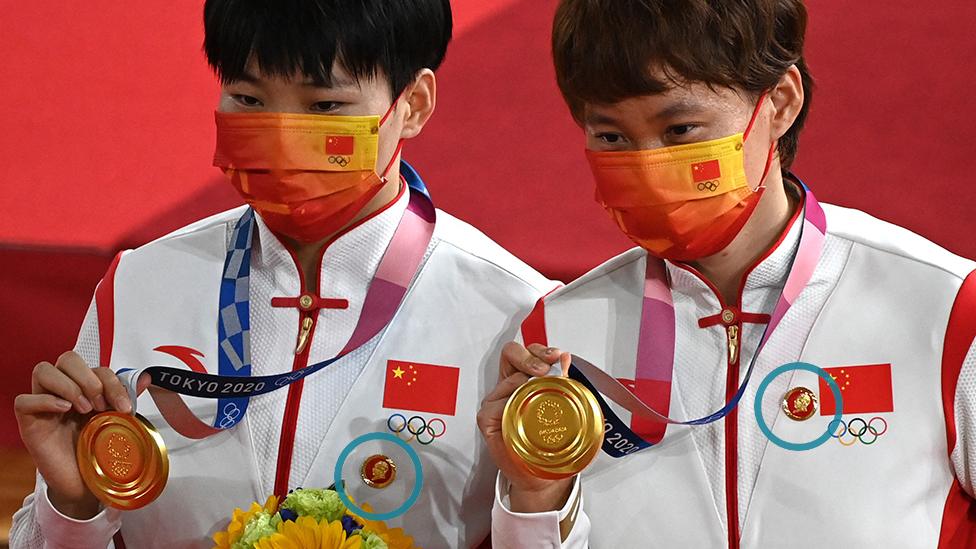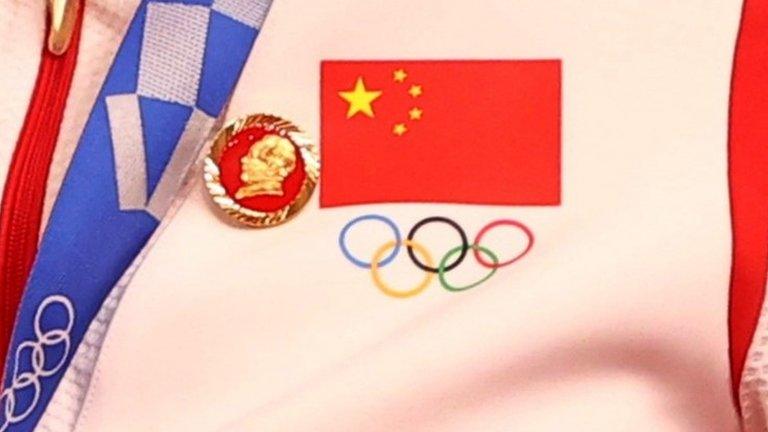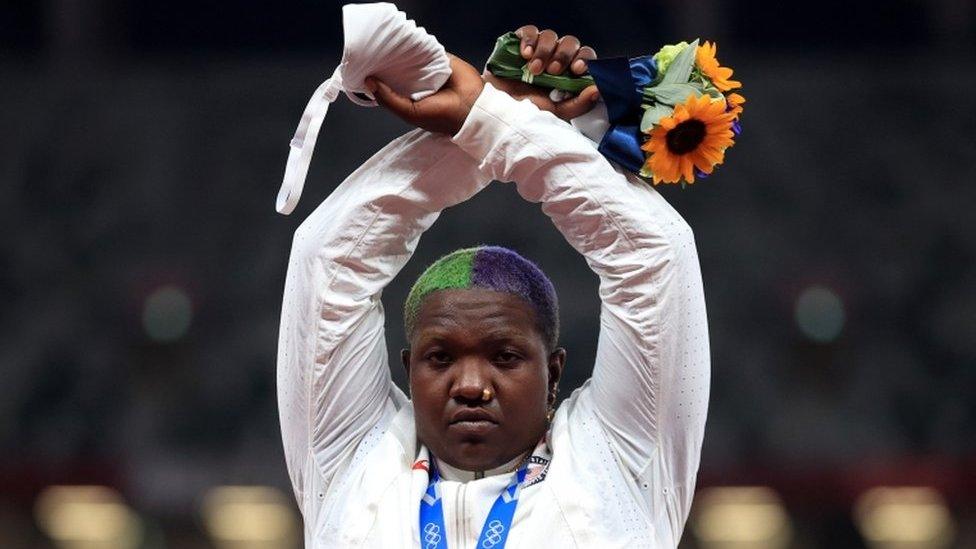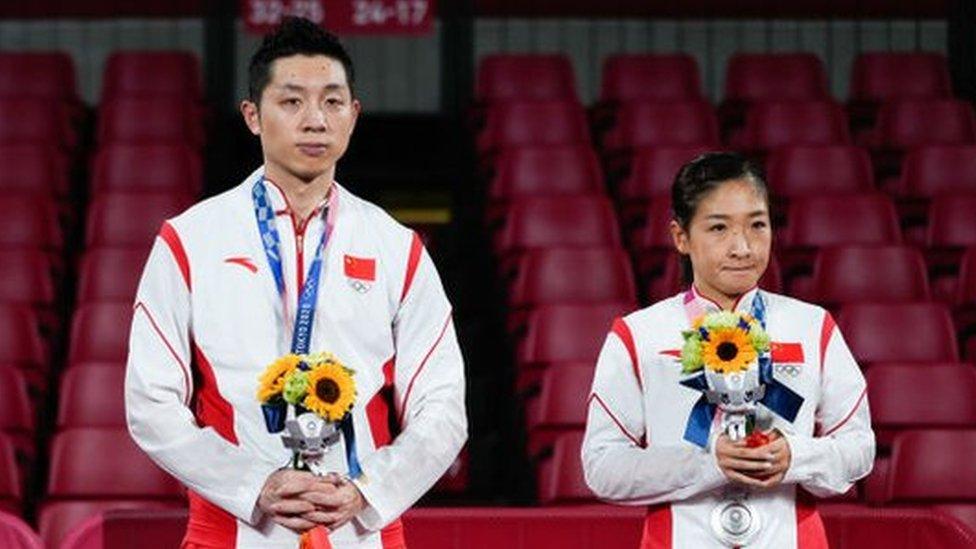China says no more Mao badges after IOC warning
- Published

Two Chinese cyclists wore badges with an image of former leader Mao Zedong at a medal ceremony
China has said its athletes will no longer wear political badges at medal ceremonies at the Tokyo Games, the International Olympic Committee says.
The IOC says it has received a "clarification" from the Chinese Olympic Committee over the political gesture of its athletes.
Two Chinese cyclists wore badges with an image of former leader Mao Zedong during a medal ceremony last week.
Such gestures are banned during competition or at medal ceremonies.
The IOC reviewed the incident, but said it had received assurances from China.
"On China, we have received clarification and the athletes have been warned," said Christian Klaue, IOC director of corporate communications and public affairs.
"We have also received assurances that it will not happen again. With this, the IOC considers this case closed."
The Chinese pair - Bao Shanju and Zhong Tianshi - won the women's sprint on Monday.
Article 50 of the Olympic Charter says "no kind of demonstration or political, religious or racial propaganda is permitted in any Olympic sites, venues or other areas".
Rules were eased last month to allow athletes to "express their views" before and after competing, paving the way for athletes to take the knee to highlight racism without facing sanction.
But bans remain on gestures or statements during competition or at medal ceremonies.
Mao Zedong ruled China with an iron fist from 1949 until his death in 1976. He was responsible for one of the biggest humanitarian disasters in history when his Great Leap Forward campaign, aimed at modernising China's agriculture and industry, led to widespread famine and the deaths of up to 45 million people.
Billions of Chairman Mao badges were produced in China in the 1960s. They were worn during the Cultural Revolution to show loyalty to Mao, but remain commonplace today.
Related topics
- Published3 August 2021

- Published2 August 2021

- Published3 August 2021

- Published21 November 2022
